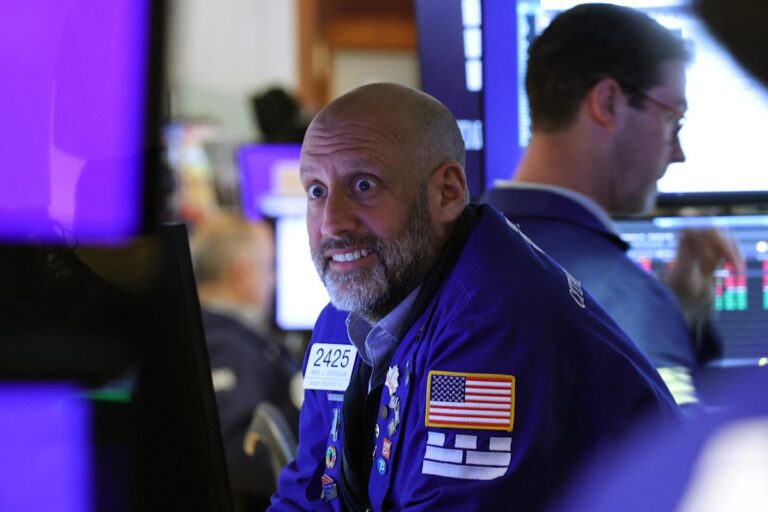Stocks staged a historic comeback from their April lows, finishing the first half of the year on a high note with the S&P 500 (^GSPC) and Nasdaq Composite (^IXIC) securing back-to-back all-time records.
A large part of the market’s gains has hinged on easing geopolitical tensions and tariff-related deescalations, including the emergence of the so-called TACO trade, an acronym for “Trump Always Chickens Out.”
The phrase captures a belief among some investors that the president often talks tough on tariffs but rarely follows through. That assumption has helped fuel a tailwind for markets in recent months as traders increasingly bet on last-minute policy pivots.
Trade deal frameworks with China and the UK are reportedly now on the table ahead of Trump’s self-imposed July 9 deadline. This has led investors to price in a “Goldilocks scenario” for stocks, with sustained earnings growth, little effects from tariffs, and rate cuts from the Federal Reserve.
But Wall Street pros are signaling caution as they assess the path forward, which still includes many unknowns.
“Just as Goldilocks awoke from her sleep to confront three bears, there are several areas where this optimism is likely to be challenged,” JPMorgan’s economics and policy team, led by Bruce Kasman, wrote in a recent client note.
Kasman cautioned investors not to “get carried away by inflation momentum,” warning that tariffs are still set to rise despite ongoing trade negotiations. This will add pressure to a US economy already grappling with softer consumer demand and signs of stalling global factory activity.
Read more: How to protect your money during turmoil, stock market volatility
“The economy is entering the second half of the year on wobbly footing,” Comerica Bank chief economist Bill Adams added.
The uncertainty has been exacerbated by mixed economic signals, including a downward revision to first-quarter GDP growth, a slight uptick in PCE inflation, and continued claims reaching their highest level since 2021, indicating some labor market softness.
“There are some yellow flags in the economy but no clear red flags yet,” Aditya Bhave, senior US economist at Bank of America, said on a call with reporters. “We’re at a fork in the road,” he said. “If something is going to break, it’s going to break soon.”
But markets have mostly shrugged off those fears in favor of more optimistic indicators.
The latest data released on Tuesday, for example, showed job openings unexpectedly rose in May to hit the highest level since November 2024. Additionally, economists have said easing inflation in areas like housing and energy may help offset tariff-related price increases.
Story Continues
